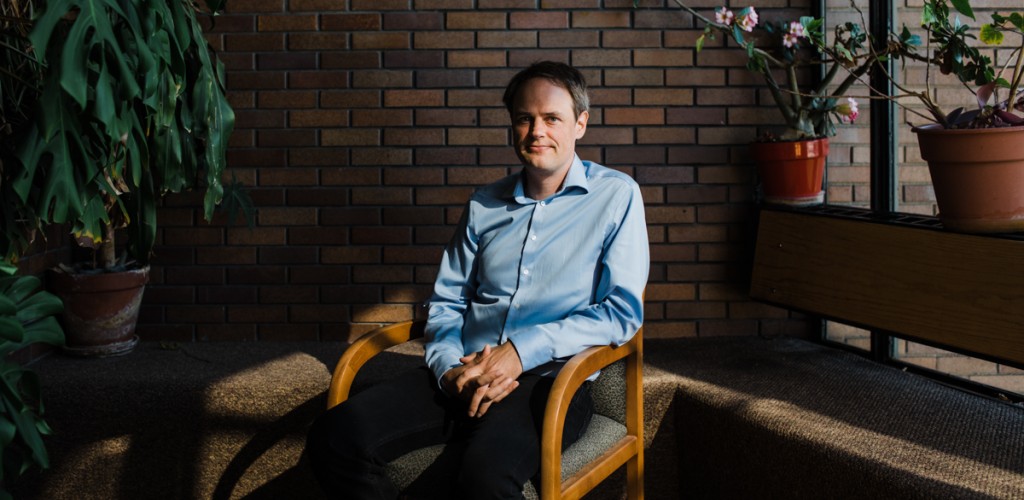Peter Hitchcock, assistant professor, Department of Earth and Atmospheric Sciences
Academic Focus: I am interested in large-scale atmospheric dynamics -- how winds evolve on planetary scales. More specifically I am interested in interactions between the stratosphere (where most of Earth's protective ozone layer is found) and weather and climate closer to the surface. Understanding these interactions should lead to better forecasts, particularly on seasonal timescales.
Previous Positions: Most recently I was a faculty member at the Ecole Polytechnique, in Palaiseau just outside of Paris, France. Prior to that I was a postdoc at the National Centre for Atmospheric Research in Boulder, CO, and prior to that I spent about four years as a postdoc at the Department of applied mathematics and theoretical physics at the University of Cambridge, UK.
Academic Background: I received my Ph.D. in 2012 from the Department of Physics at the University of Toronto. I have a Masters and a Bachelors degree from McMaster University in Hamilton, ON, Canada, where I was born and raised.
Last books read: I have recently been on a Ray Bradbury kick - in the past month I've read both `Fahrenheit 451' and `Something Wicked This Way Comes' for the first time. The writing in the latter especially is wonderfully rich.
What do you do when not working? When I am not working I like to cook - it's an important way for me to unwind in the evening. I've been singing in a choir for many years - but I am still on the lookout for the right one here in Ithaca.
What gets you out of bed in the morning? The Earth is such a wondrous - and complex - system. Getting to spend my days working on unraveling how it works is a privilege and a joy. On a more sobering level, changes in climate and in extreme weather will pose huge challenges to our civilization. One major goal of my work is to improve the models that we rely on to forecast and anticipate these changes so that we can better respond.
Current research projects: One paper I am working on at the moment is looking at how planetary-scale equatorial Kelvin waves are dissipated in the stratosphere. These waves are one of the drivers of the Quasi-biennial oscillation - an amazing fluid dynamical phenomenon comprised of periodically descending belts of easterly and westerly winds around Earth's tropics. Getting these waves right is essential for predicting the descent of these wind belts and this remains a major challenge for climate models.
What are three adjectives people might use to describe you? Thoughtful, curious, patient.
Course you’re most looking forward to teaching? I am teaching Atmospheric Dynamics (EAS 3420) in the spring and I am very much looking forward to it!
If you had unlimited grant funding, what major problem in your field would you want to solve? Given unlimited funding to work on a problem in my field, I would devote it towards creating the next generation of climate models that explicitly resolve important small scale processes like convection and gravity waves. Both turn out to be critically important to understanding how the stratosphere behaves and how it may change in the future.
What most excites you about Cornell CALS? CALS (and Cornell in general) seems to be much better than most places at breaking down barriers between disciplines. Making forecasts better will have implications for many sectors of society — agriculture in particular — and I can imagine many fruitful collaborations within CALS. But I'm most excited about those that I haven't even considered yet.





